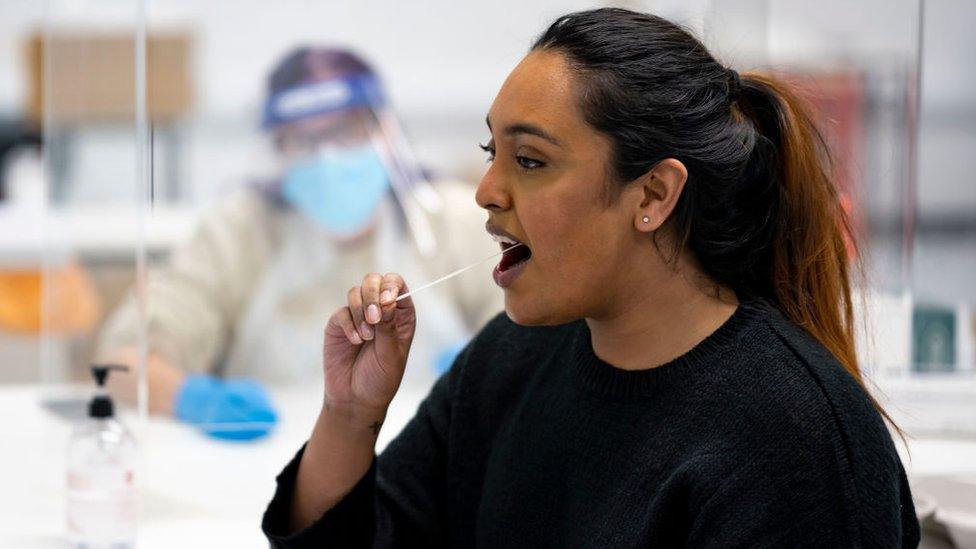Covid: Wales likely to see a 'tsunami' of Omicron cases
- Published
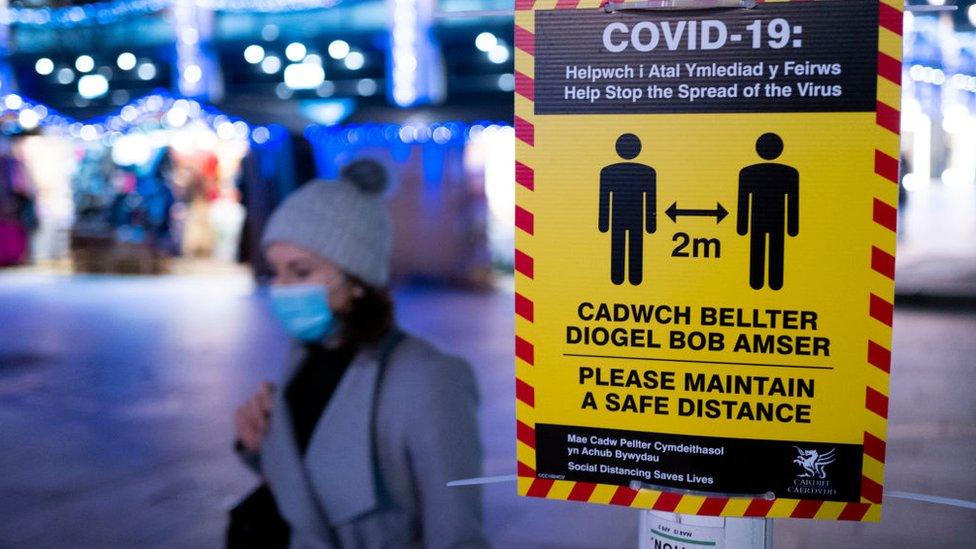
Dr Giri Shankar said Wales could see a "tsunami" of cases in the coming weeks
Wales' current plans to tackle the Omicron variant of Covid may not be enough, according to a leading government adviser.
Public Health Wales' Dr Giri Shankar said further restrictions could be needed.
He added Wales was "likely to see a tsunami of cases" in the coming weeks.
People have been asked to follow guidance around socialising over Christmas before nightclubs are set close from 27 December.
But the first minister has already said further changes around sporting events and other restrictions could be introduced.
On Sunday, Public Health Wales (PHW) reported four further deaths of people who had Covid, and 3,462 new confirmed cases of the virus.
Of those cases, PHW confirmed 91 were new cases of the Omicron variant, bringing the total to 272 cases in Wales.
Boris Johnson has said a meeting of the UK government's emergency committee Cobra will be held over the weekend with the Welsh government and representatives from Scotland and Northern Ireland.
Allow X content?
This article contains content provided by X. We ask for your permission before anything is loaded, as they may be using cookies and other technologies. You may want to read X’s cookie policy, external and privacy policy, external before accepting. To view this content choose ‘accept and continue’.

On Saturday, a major incident was declared in London and more than 10,000 further Omicron cases were confirmed in the UK.
Speaking to the BBC Politics Wales programme, Dr Giri Shankar from Public Health Wales said: "We appear to be a week or two behind what London, most parts of England, and Scotland are seeing.
"We need to make that work to our advantage because the higher the cover with booster vaccination... the better."
With early analysis suggesting two doses of a Covid-19 vaccine do not offer sufficient protection against the new Omicron variant, the rollout of the booster programme has been escalated.
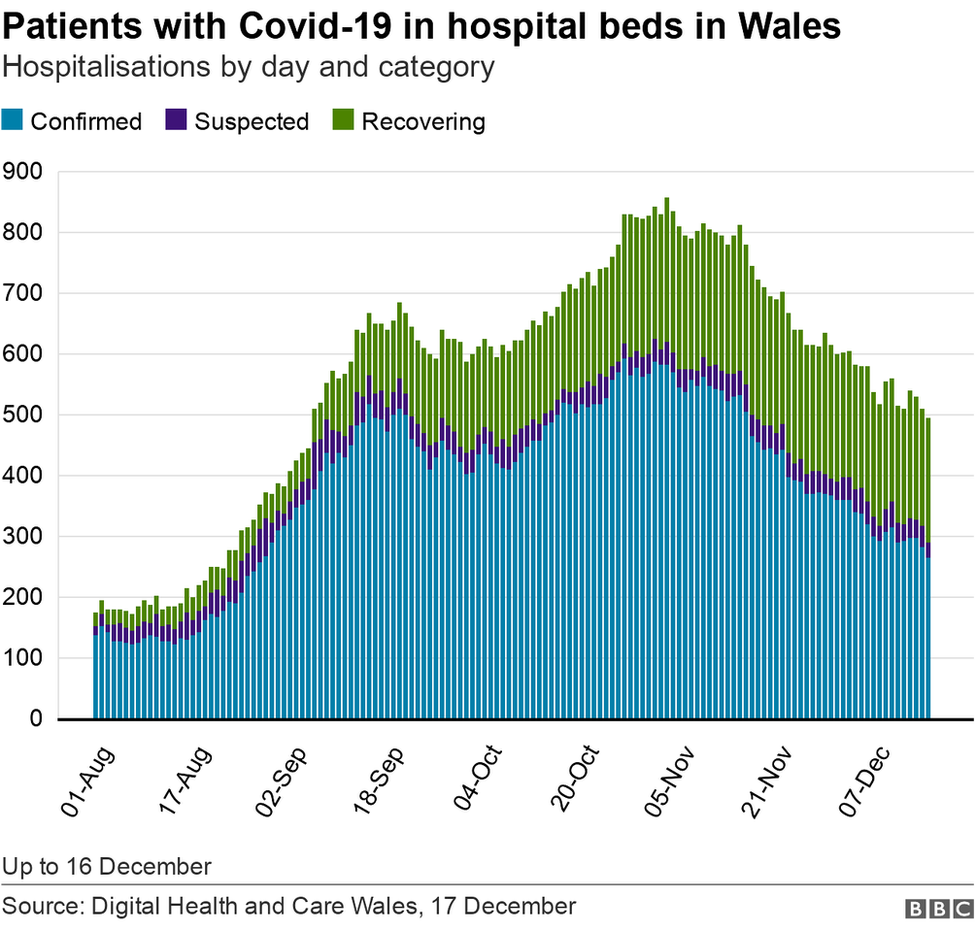

The aim is to offer all eligible adults in Wales a booster jab by the end of the year.
In the run-up to Christmas, the Welsh government is urging people to take a lateral flow test before going out, meeting outdoors if possible, and leaving a day between social events.
But from 27 December new legal restrictions will be introduced, including the closure of nightclubs and extra rules for businesses and services to protect customers and staff, such as one-way systems.
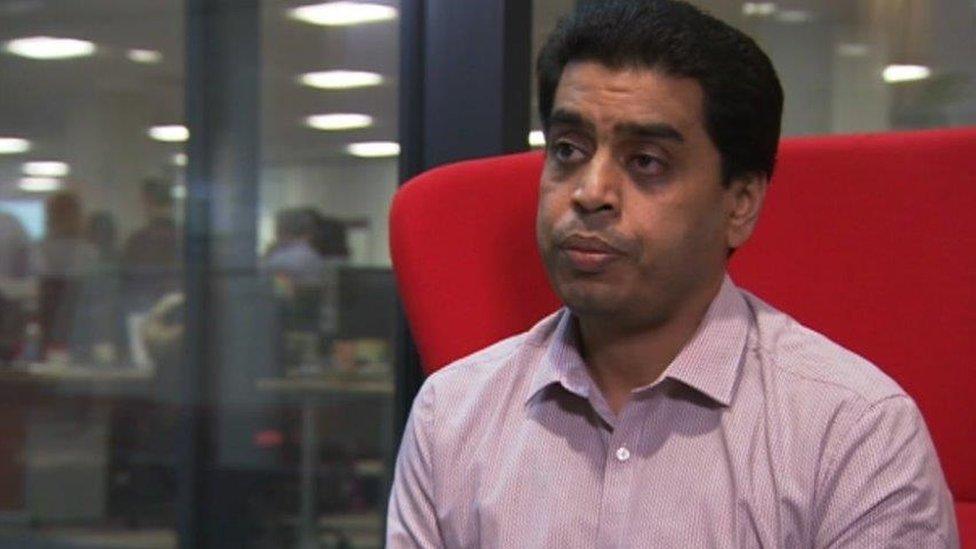
Dr Shankar said additional restrictions might be needed
As a member of the Technical Advisory Cell (TAC), Dr Shankar is part of a group that offers scientific advice to the Welsh government.
Asked what advice was given for the current change in Covid rules, Dr Shankar said it included "some of what has been announced, including limiting the number of social contacts, uptake of booster vaccination... social distancing, working from home, hand hygiene, face covering".
He also added: "But I think we may well see a situation where, despite all those measures and with good compliance to those measures, we may still find that the case numbers and the burden on the system may be such that we might need additional restrictions."
On Thursday, there were 267 confirmed Covid patients in Welsh hospitals - the lowest level since the end of August and much lower than during the peak in January. , external
But Dr Shankar said Omicron was "highly transmissible and with large numbers of infection, invariably a small proportion of those will need hospitalisation".
"Even that small proportion, in terms of its absolute number, is enough to tip the balance in the health and care system," he added.
'Relentless'
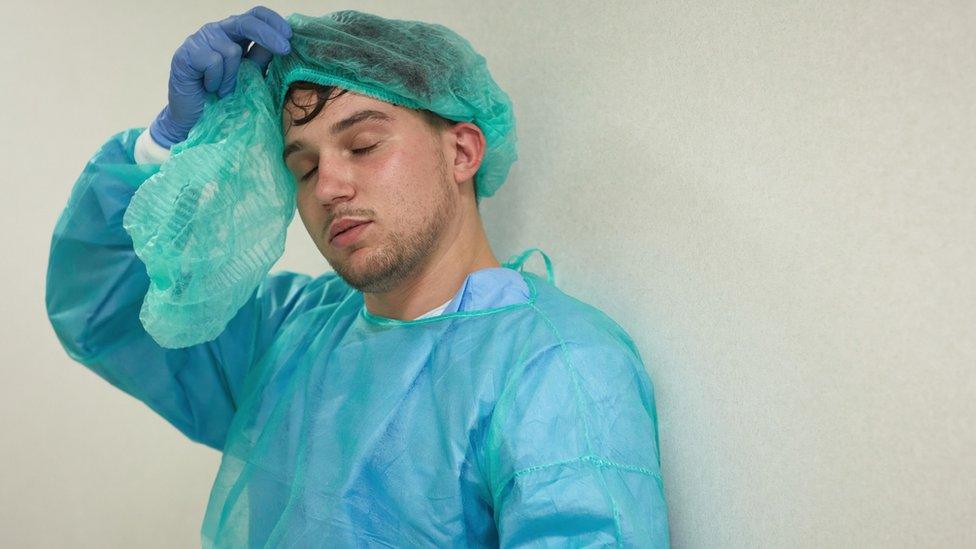
One of the main concerns with Omicron is workforce pressures if a significant number of people are self-isolating
The current situation in the Hywel Dda Health Board in west Wales is "really challenging at the moment", according to its chief executive.
But Steve Moore added: "Actually, it's been very challenging probably since early September when we saw sort of winter-levels of demand... and it hasn't stopped since then.
"For staff, that means it's now been relentless for quite a few months as we head into probably our busiest period."
One of the main concerns with Omicron is that a wave of cases could spread widely and quickly in a short space of time, leading to workforce pressures if a significant number of people are self-isolating.
Asked by Politics Wales about potential workforce pressures, Mr Moore said: "We are trying to keep a number of plates spinning.
"We've got the massive ongoing booster programme... we've also got to keep our urgent care services going, whether that's for Covid or not Covid, but also we're trying to get as far as we can with progress for the planned care, all those many tens of thousands of people who have been waiting.
"Clearly, as things ramp up, we're going to need to make decisions about where we prioritise those things because we're not going to be able to keep them all going if some of the predictions, some of the modelling, comes true."
'Huge impact'
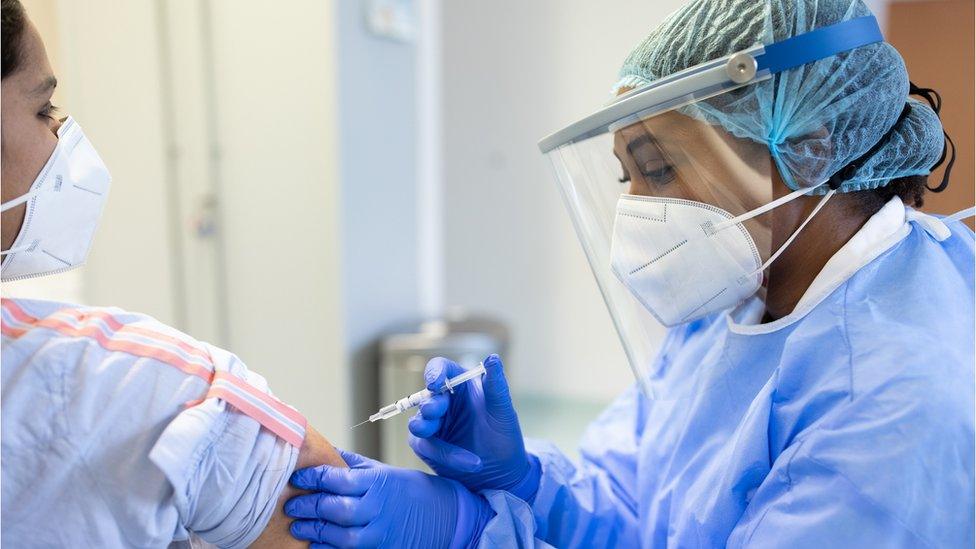
As two doses of a vaccine cannot provide enough protection against Omicron, a booster is "vital"
Of the 91 new Omicron cases confirmed on Sunday, 25 were recorded in the Cwm Taf Morgannwg health board area and 17 in Cardiff and Vale.
There have also been 16 more cases recorded in both the Aneurin Bevan and Swansea Bay health board areas, while Betsi Cadwaladr reported 13 cases.
Powys Teaching Health Board reported four new cases.
The leader of Welsh councils, Councillor Andrew Morgan, said modelling of what could happen suggested "upwards of 30% of the population being infected".
Mr Morgan added: "But, to be clear, if we lost just 20% of our staff and 20% of refuse workers, 20% of social care staff, 20% of teachers in schools, that would have a huge impact on delivery.
"And ultimately, the impact on council services will impact on residents so there are lots of different plans being put in place as a worst case."
Mary Wimbury, chief executive of Care Forum Wales, said: "We're going to see staff inevitably getting the virus as it rips through the general population, and it is just a question of how many staff we've got available to keep services going at the worst time in the year for it to happen."
You can see more on this on BBC Politics Wales at 10:00 on Sunday 19 December on BBC One Wales and iPlayer.
- Published18 December 2021
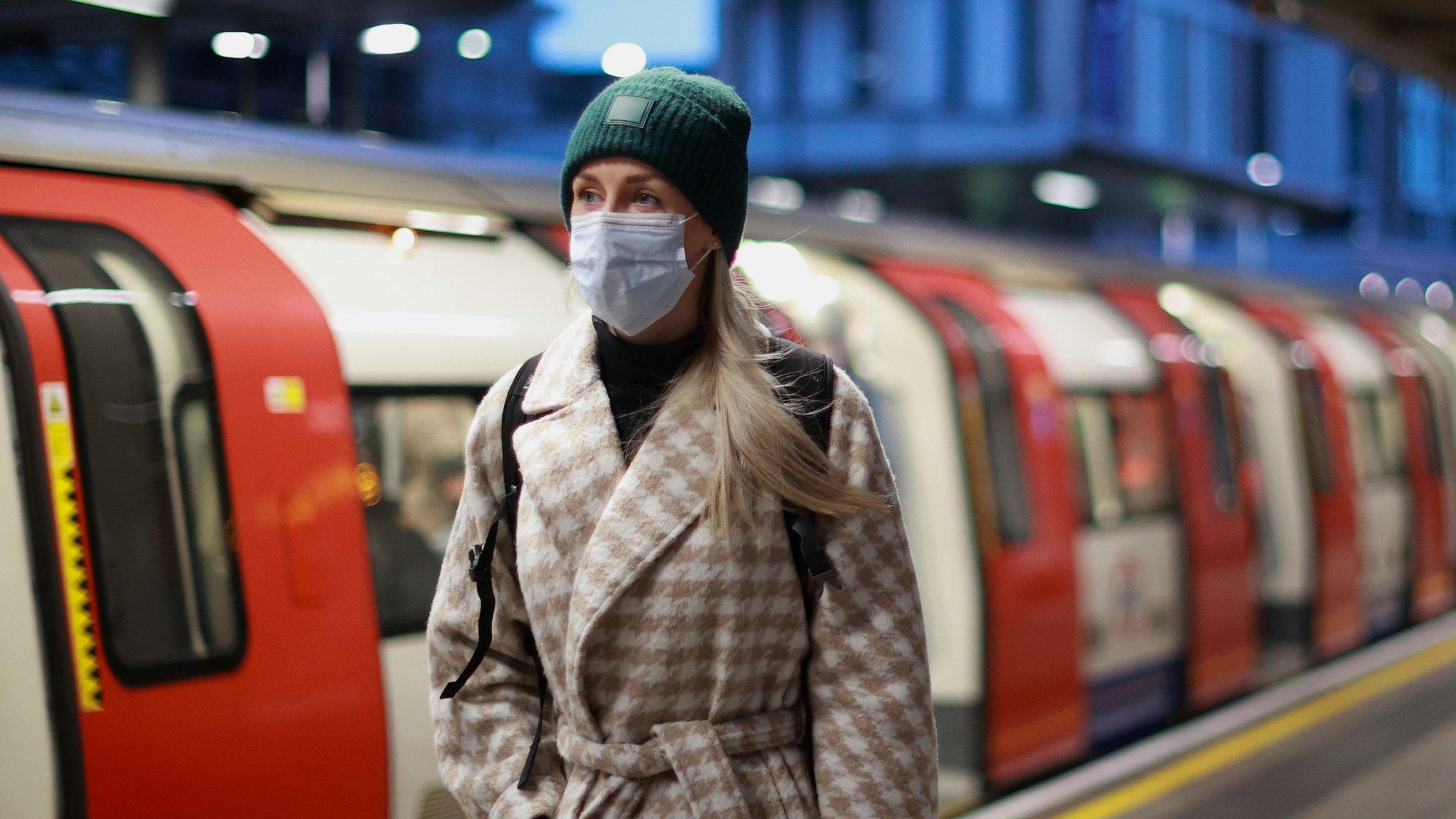
- Published16 December 2021
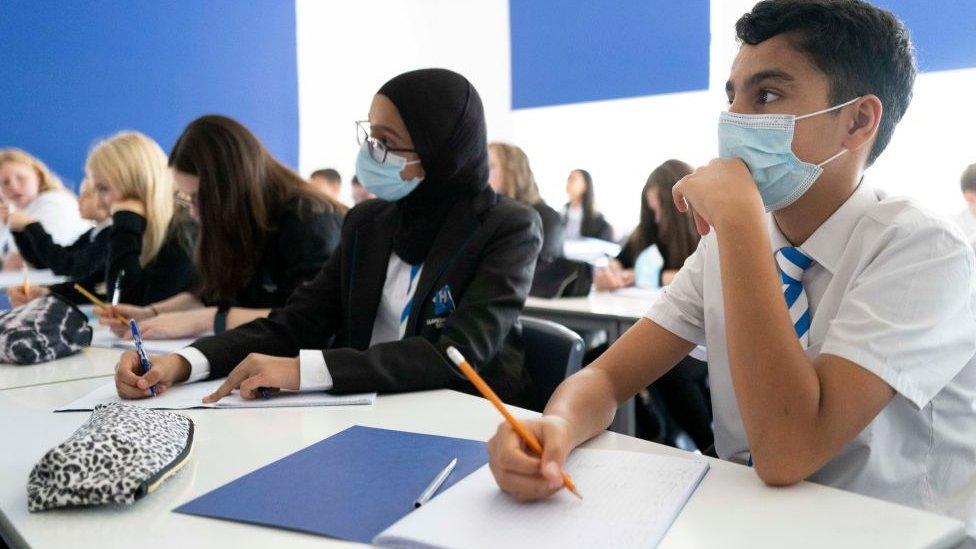
- Published18 December 2021
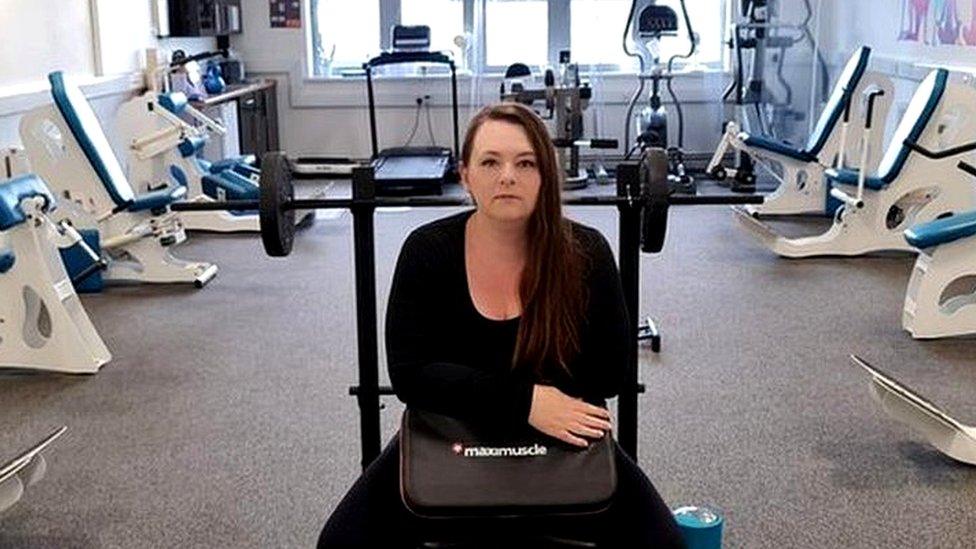
- Published17 December 2021
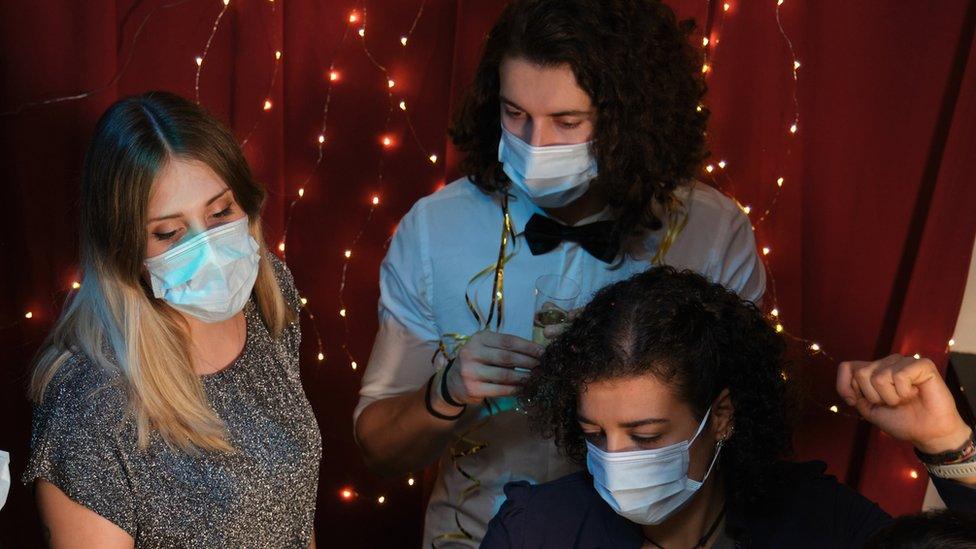
- Published17 December 2021
